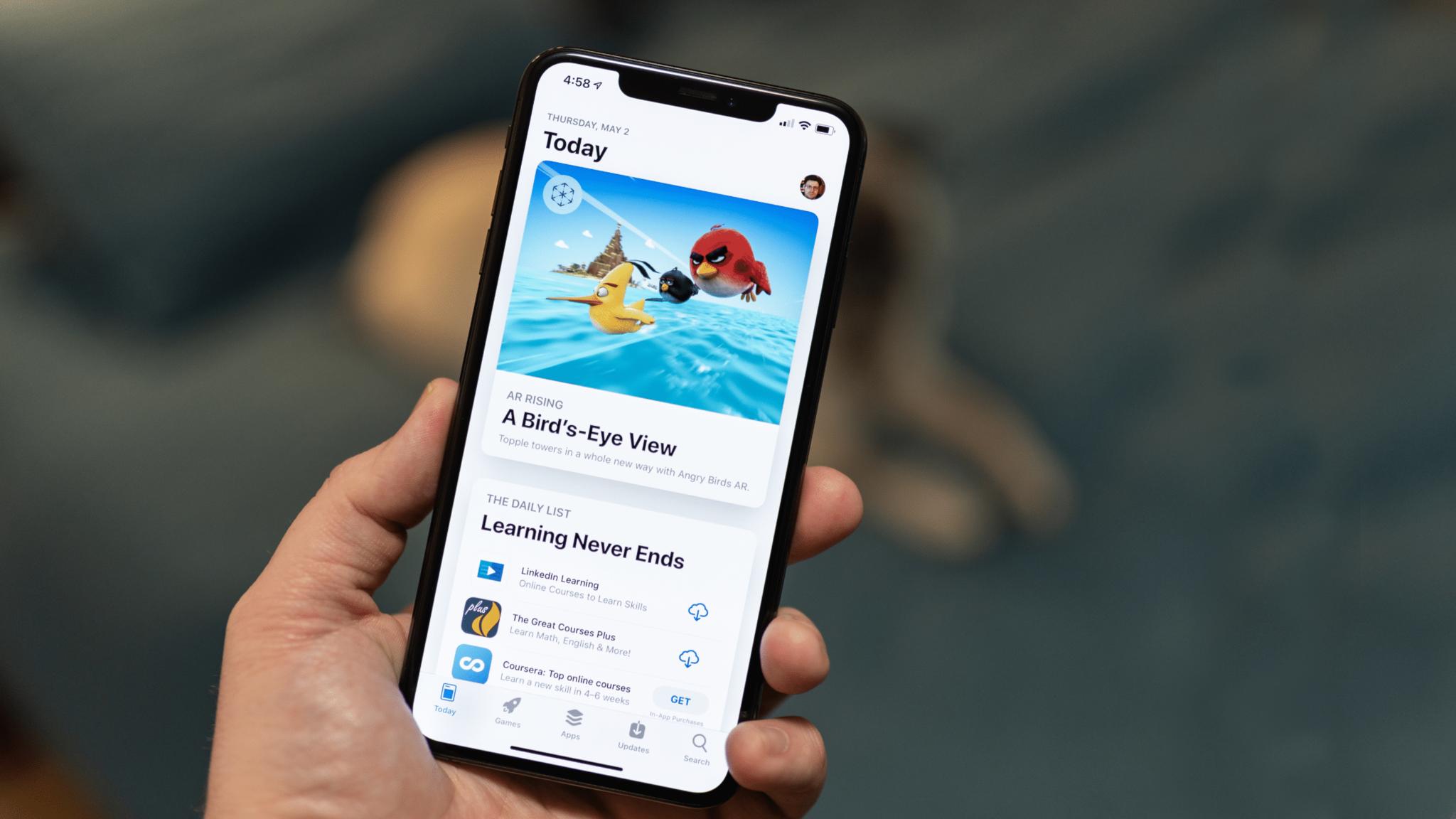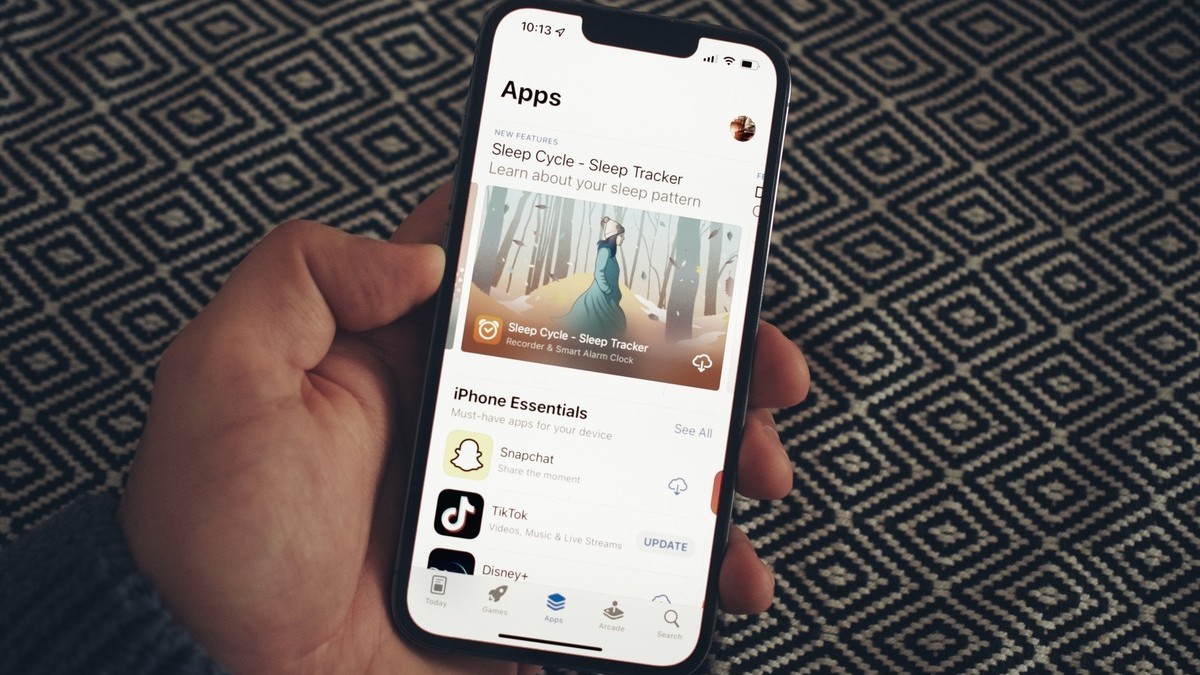iPhone app sideloading? Developers can't agree whether it's a blessing or a disaster waiting to happen
Developers aren't convinced by the prospect of sideloading.

iMore offers spot-on advice and guidance from our team of experts, with decades of Apple device experience to lean on. Learn more with iMore!
You are now subscribed
Your newsletter sign-up was successful
It's something that few people ever thought would happen, and it still might not. But a recent report claiming that Apple is ready to open the iPhone to apps installed by methods other than the App Store has reignited debate — would sideloading be good, or bad?
The answer to that question is complicated. There isn't even just one answer. Whether sideloading would be beneficial very much depends on who you are and what you do. If you're a power user, the answer will be very different than if you were someone who only uses their iPhone to send iMessages and browse Facebook.
And if you're a developer, building apps for Apple's platform? Well, things are even more complicated for you.
Giving the App Store some competition
One thing that is often said of the App Store is that it has no competition because, due to Apple's rules, it can't. There is no other way to distribute real apps on iPhones and web apps have their limitations. After all, if HTML 5 could do everything developers and users needed it to, we wouldn't have the App Store in the first place.
That lack of competition, as is so often the case in other industries, means that Apple can effectively do and charge what it wants. Those who don't want to pay Apple 30% of their App Store revenue have no real options, beyond simply not selling an iPhone app in the first place. That's the route that Epic Games famously went down with Fortnite. And two years later, Fortnite is still missing from the App Store.
Sticking with the Fortnite example, competition would mean that Epic could distribute Fortnite however it chose. If the alternative meant giving a third party a smaller cut, or perhaps none, then the market would speak and the App Store would lose out. But none of that happens because third-party app stores and sideloading, in general, aren't possible.
But what if they were?
iMore offers spot-on advice and guidance from our team of experts, with decades of Apple device experience to lean on. Learn more with iMore!
"I think payments competition will be a good thing in terms of possible experiences, but I worry that after introductory periods every store will end up with the same prices," says developer Alex Logan. "I think the PC gaming situation has proved this in a way, that all these platforms are available with varying cuts, yet the actual price you pay doesn’t differ."
In those instances, users wouldn't pay any less but developers would benefit greatly.
Menu Plan developer Davide Benini is part of Apple's Small Business Program, meaning the company's cut of his sales is 15% rather than 30%. He says that "if that 15% became 5% or even 10% that’d make a huge difference." And those whose cut is higher stand to benefit even more. "Obviously it’d make more of a difference for those outside the small business programs, currently paying 30% to Apple," Benini adds.
Owning the experience
There are benefits to selling apps outside of the App Store that go well beyond money, though. As things stand, developers don't own the relationship with their customers with Apple acting as a go-between, whether they want it to or not. Developers are often the ones that app users reach out to for refunds but only Apple can initiate them, for example.
Removing Apple from the equation would change that.
"[That] is definitely an aspect of the App Store that could improve," says Benini. "I have no way of knowing my users' email and of course, it’d be nice to be able to contact my paying customers, or get back to them when I see a crash in my log."
Benini isn't alone. Speaking of the relationship he'd like to have with users, Logan says that having more control would give him the flexibility to keep customers he might otherwise lose.
"If someone wants to cancel, I’d love to be able to offer them special deals, or offer super bespoke offers just through one channel," he says. "I imagine Apple could offer this, and I hope they do, so maybe some competition will push that forward."
The not-so-wild west
One issue that some people have suggested sideloading could bring is a lack of security. Apple itself claims the App Store is the only thing between users and the wild west — apps that can steal data and other things only App Store review can prevent. But that isn't necessarily true. Unusually, the Mac might be the answer.
While the Mac App Store functions in much the same way as the one on iPhone and iPad, being able to install apps outside of its walled garden is a given. But that doesn't mean that apps aren't checked by Apple.
Mac apps can be "notarized," which means Apple has checked them for malicious code to ensure that they're safe. That's an approach that it could take with iPhone apps as well.
"I’m convinced that we’ll see a similar system to Mac, where most apps get notarised, but you can of course download something completely random off the internet," says Logan. He expects that Apple will display multiple warnings if an app isn't notarized so that people know what they're getting themselves into. "I have no doubt we’ll get a myriad of warnings before doing that, I just hope that they’re good enough to stop vulnerable folks from being told to download a banking app through some random link."
Google's Android has allowed sideloading since day one and offers a similar alert when users try to install apps that were downloaded outside of the Play Store. Apple could do something similar if it chooses to.
Not a done deal

But with all of this laid out, what will developers choose to do if and when Apple blows the doors off of the iPhone and lets people download apps outside of the App Store?
"I’d definitely keep my app in the App Store; removing it from the App Store would mean losing the ranking position I managed to get to in the last 18 months," adds Benini. "I get most of my downloads from organic downloads, it’d make no sense to lose them." But that doesn't mean that he wouldn't also make his app available in other stores if given the choice. "If and when another store gains traction I might consider putting my app up there as well."
DEVONtechnologies, the company behind DEVONthink, says that it hasn't decided what it will do if the choice comes. It doesn't make the Mac version of its apps available in the Mac App Store, but it did confirm that it would at least keep its iPhone and iPad apps in the App Store "for its update and subscription handling alone."
That's a key consideration here. Subscription management and indeed payment processing is all handled by the App Store automatically. Any money that changes hands elsewhere would need to be processed.
Logan's stance reflects that. "Whilst I’d love to get my app in-front of as many people as possible, I don’t look forward to the idea of having to handle a bunch of different payment methods when it comes to subscriptions," he says. But notably, that stance could change if the numbers make the extra work worthwhile. "That might change if someone says I get to keep 95% of my subscription revenue."
There's another layer here that some people haven't pointed out already — the App Store helps protect developers from having their apps copied, although it doesn't always do a good job of it.
But with apps that can be installed from anywhere, that protection is gone.
There are a lot of valid points on either side, but here's one I don't see mentioned oftenFor mid-sized companies one risk is a copycat app stealing your IP and undercutting you on price. Easy to handle when Apple can step in, but with X external app stores, it could be costlyDecember 14, 2022
Ultimately, this might all come to nothing. But Bloomberg's article suggests that the EU is ready to force Apple's hand. And as much as Apple might have tried to dig its heels in over the years, the EU usually gets what it wants. A future USB-C iPhone should prove that.
To sideload, or not to sideload
Whether or not opening the iPhone to sideloading will be a good idea or not, only time will tell. Some are concerned that apps like Facebook, Instagram, and WhatsApp will inevitably be removed from the App Store just because they can be, leaving customers confused. But we only need to look as far as Android to prove that isn't necessarily the case. Big companies like Meta know that the place most people go for apps is the Play Store, so that's where their apps are. And yes, Facebook, Instagram, and WhatsApp are all available for download there as well.
As for who will benefit the most from sideloading, that'll surely be people like us. Power users who want to use apps that wouldn't normally get into the App Store because they fall foul of Apple's rules. Game emulators are the obvious example here, but there are others. And if sideloading is what it takes to get them without the messiness of jailbreaking, so be it.
But what's clear is that sideloading isn't a silver bullet. There are questions to be answered and solutions to be found. But the mere suggestion that Apple could one day allow third-party app stores and sideloading is enough to get those conversations started. And they clearly need to happen soon.

Oliver Haslam has written about Apple and the wider technology business for more than a decade with bylines on How-To Geek, PC Mag, iDownloadBlog, and many more. He has also been published in print for Macworld, including cover stories. At iMore, Oliver is involved in daily news coverage and, not being short of opinions, has been known to 'explain' those thoughts in more detail, too.
Having grown up using PCs and spending far too much money on graphics card and flashy RAM, Oliver switched to the Mac with a G5 iMac and hasn't looked back. Since then he's seen the growth of the smartphone world, backed by iPhone, and new product categories come and go. Current expertise includes iOS, macOS, streaming services, and pretty much anything that has a battery or plugs into a wall. Oliver also covers mobile gaming for iMore, with Apple Arcade a particular focus. He's been gaming since the Atari 2600 days and still struggles to comprehend the fact he can play console quality titles on his pocket computer.
